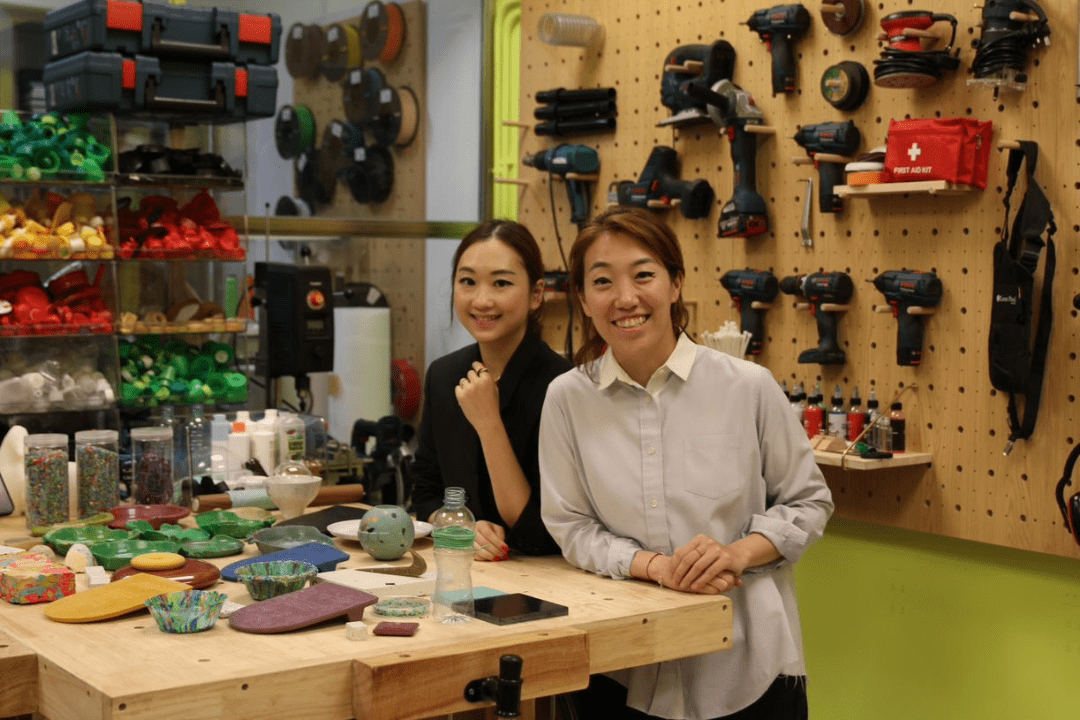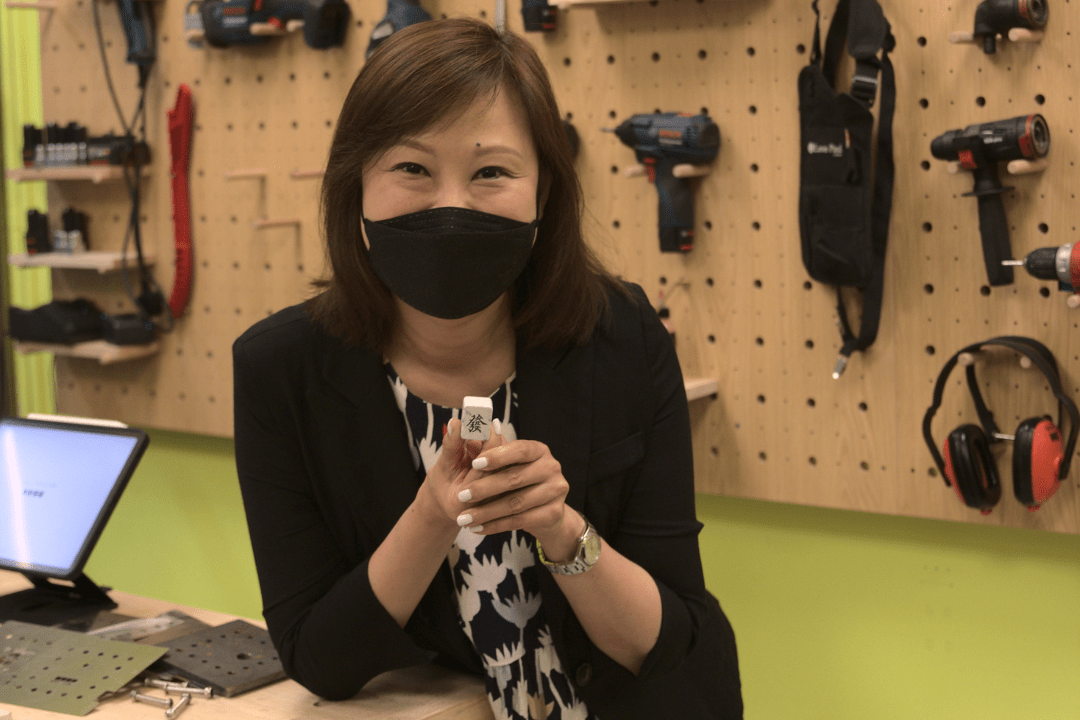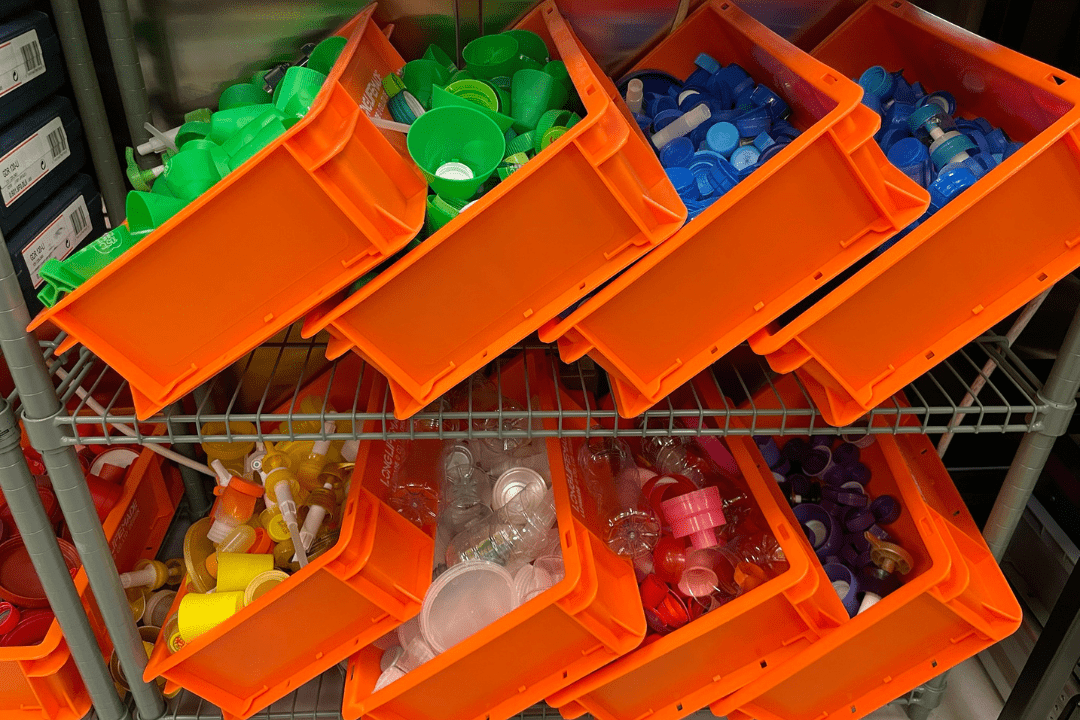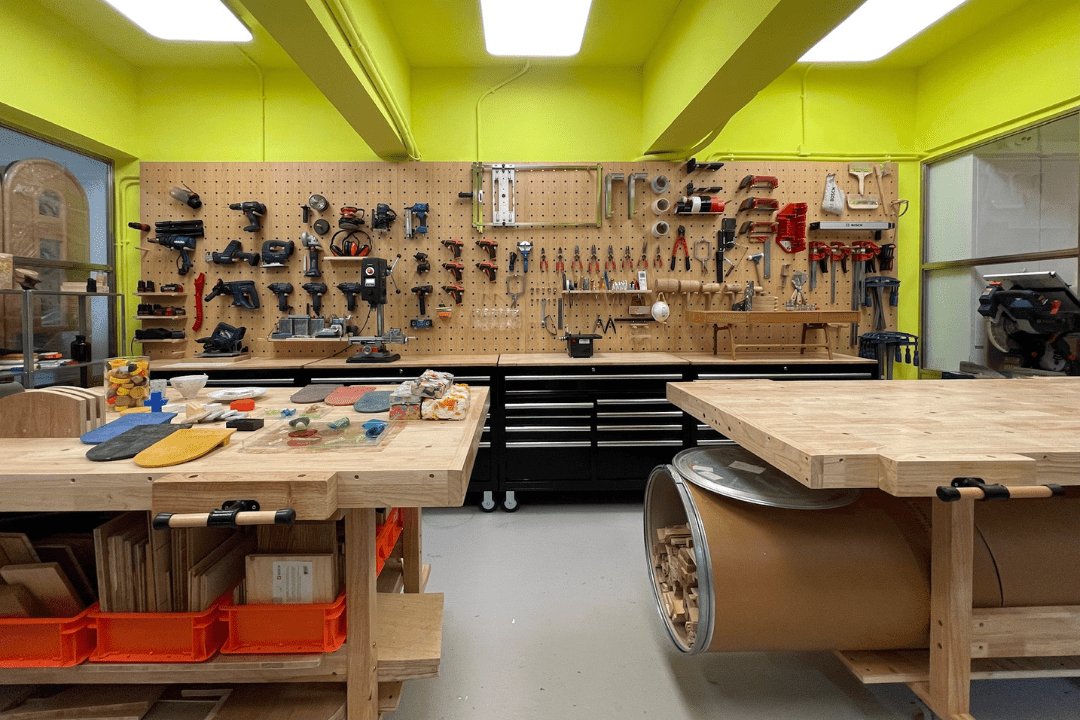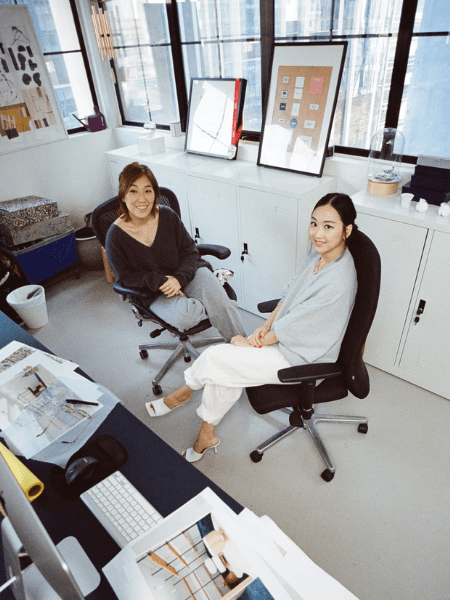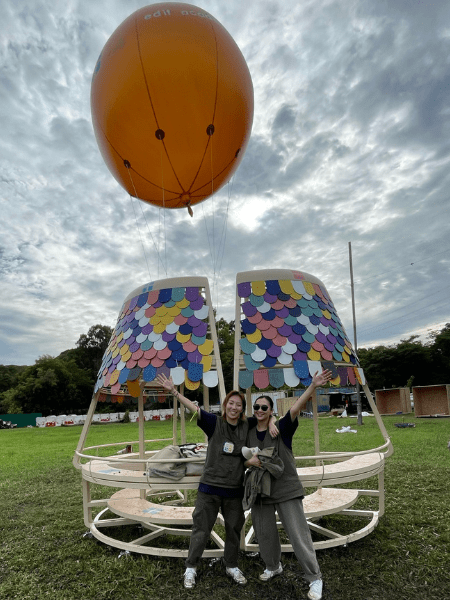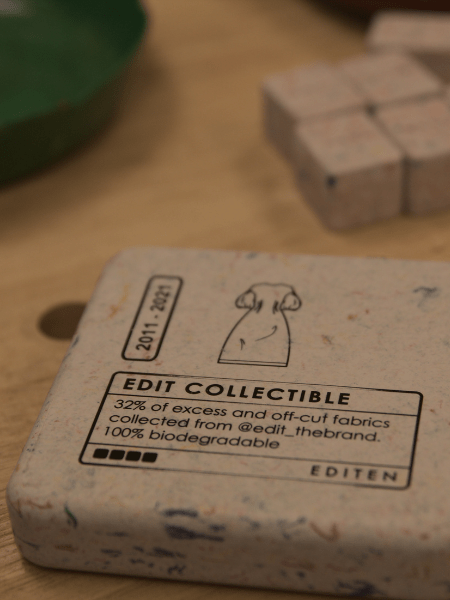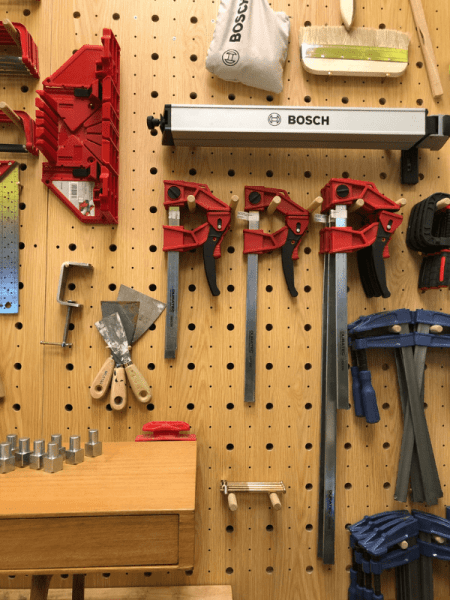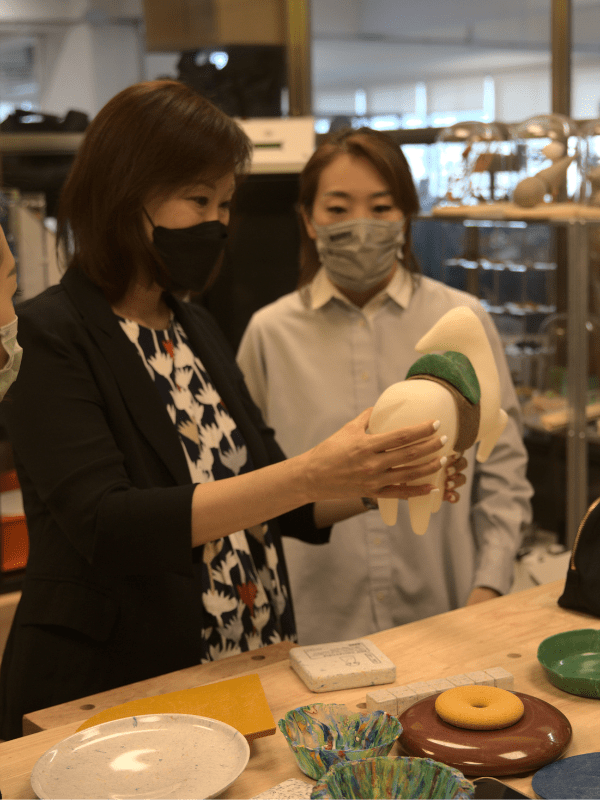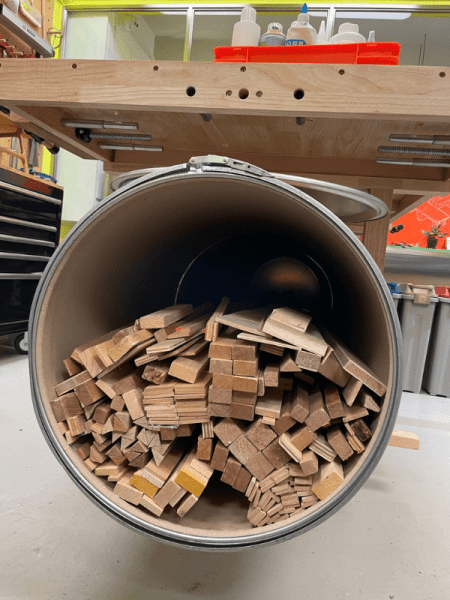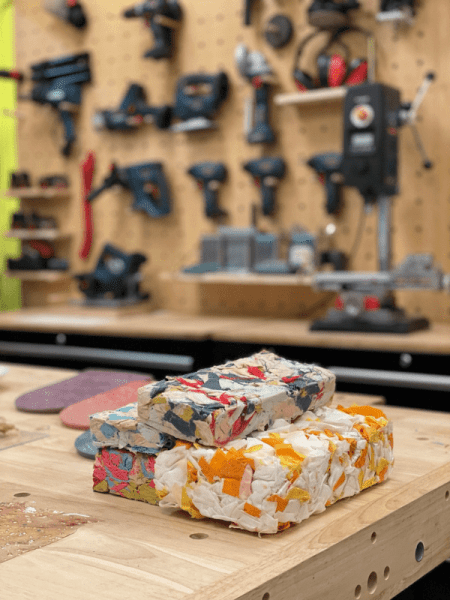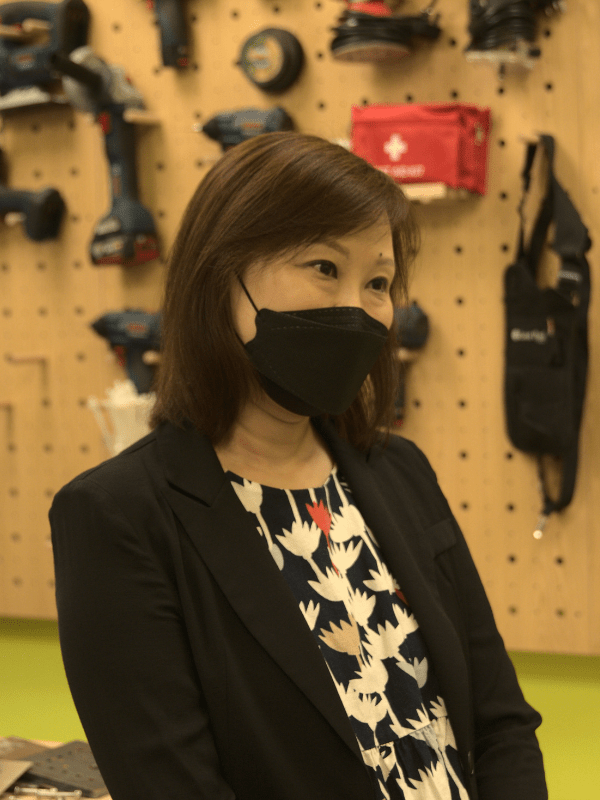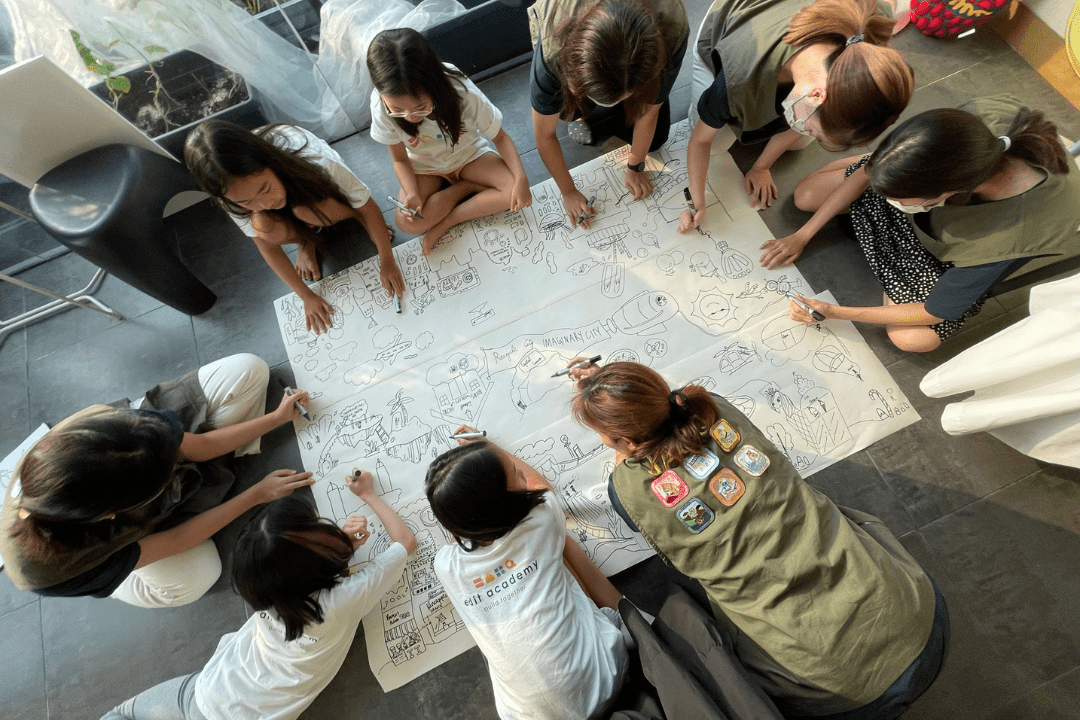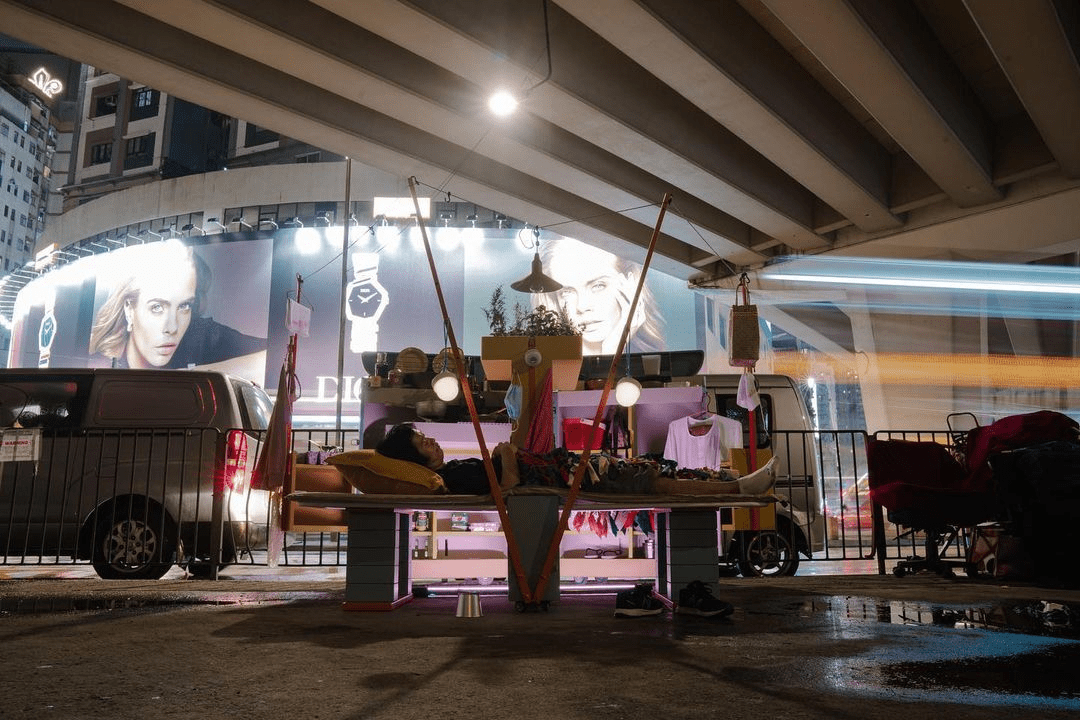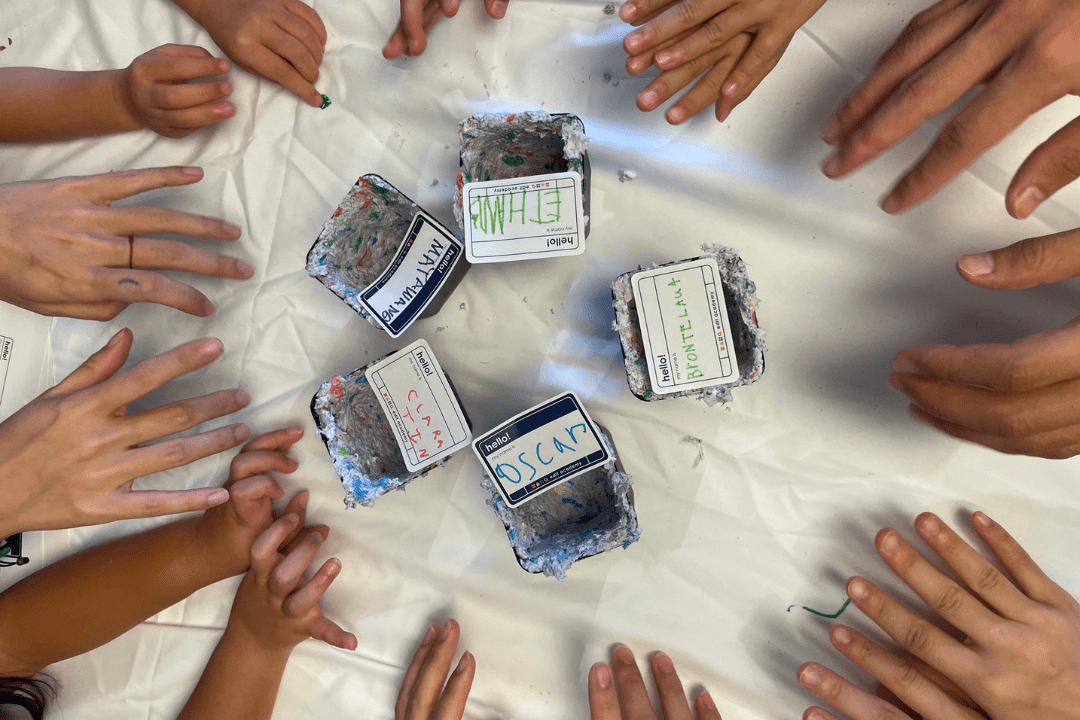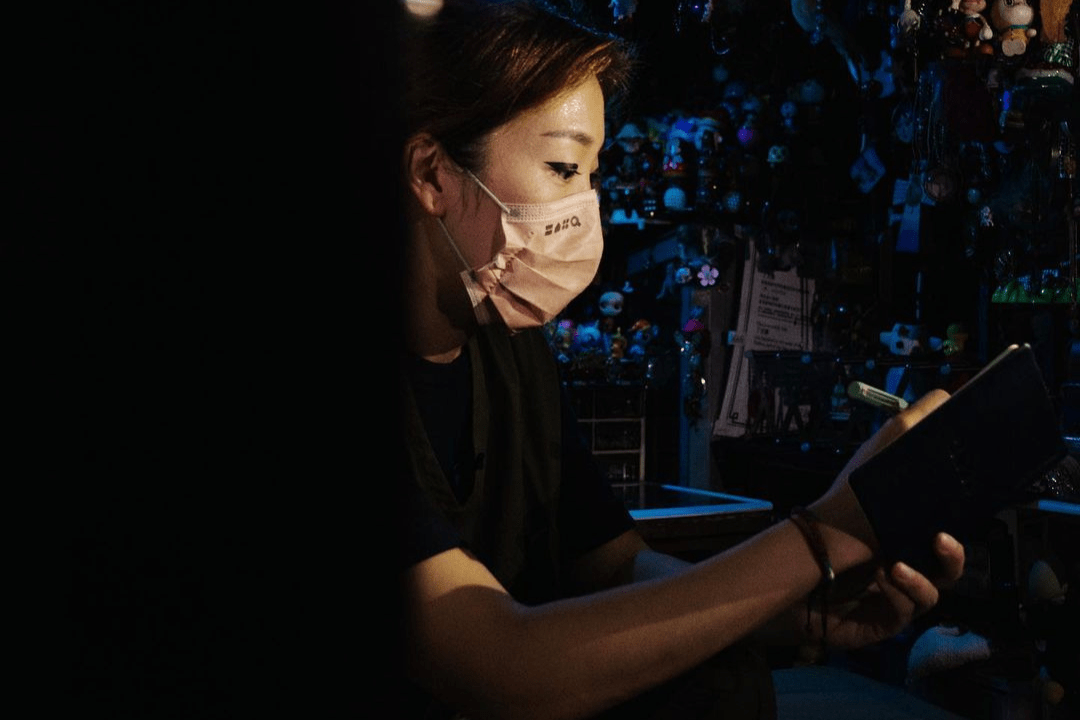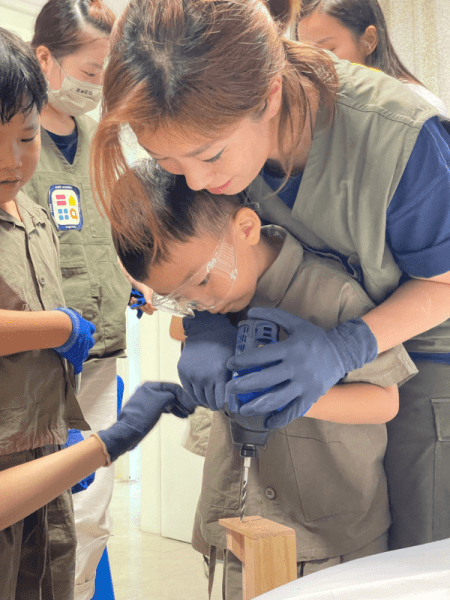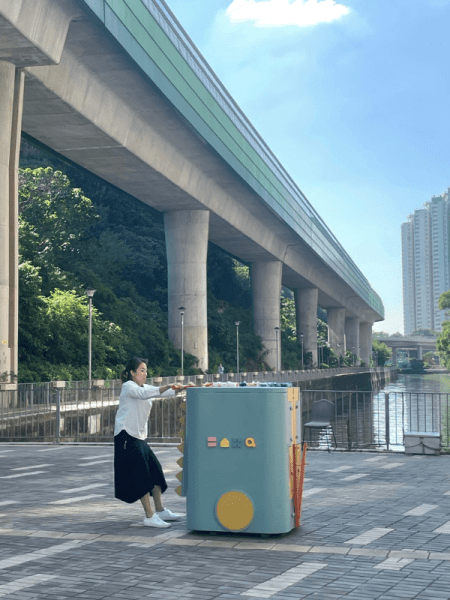In Conversation with EDITECTURE: How Sustainability Drives Their Design Studio
Jennifer Cheung, General Manager of EAST Hong Kong visits the studio of Jacqueline Chak and Genevieve Chew, co-founders of multidisciplinary design studio EDITECTURE and hears the story behind their vision of sustainability and how the idea of more plastic than fish in the sea led to educating the next generation.
Jen: It’s so exciting to be here in your studio finally. It was great to see your work on The House Collective Mooncake Box Set this year and the real message of sustainability you brought to it. I loved the idea of reusing materials from the Houses to make into jade amulets for passing on peace and unity. Your passion for sustainability is really clear. How did you come to start EDITECTURE?
Jacqueline: We actually met in London. I studied architecture at the Bartlett School at University College London and Gen was working as an accountant. We bonded over design…and shopping.
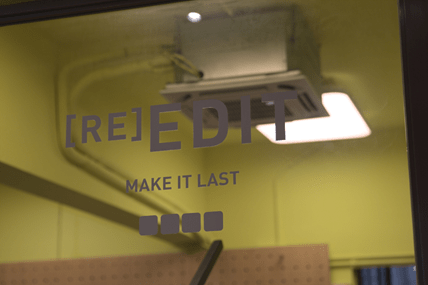 Jen: You’ve come a long way since those beginnings. Can you tell me more about the EDIT LAB behind us?
Jen: You’ve come a long way since those beginnings. Can you tell me more about the EDIT LAB behind us?Jacqueline: We needed something to let people see the whole process – it’s better to show than try to explain. And if there are any defects in the materials, then we can just put it back in the machine for a third life. A few years ago, we started to do pop-ups for our clients and brands. We couldn’t help but see that there was so much waste – even if it’s only a three-day installation, throwing away all the materials is definitely cheaper for contractors than storing and re-making it. It was really crazy to see. In 2014, we started thinking: we can use our design background and, while obviously we can’t keep all, we can upcycle some of the leftover materials. We began to test and develop a process to educate clients about sustainability.
As we encouraged clients to use sustainable materials, it turned out that cost was a big concern as it can be three times more expensive. So we thought, what if we could do all of the test runs here, under our aesthetic eye, to minimise back-and-forth with clients? We could develop the samples at our studio and then manufacture with factories in China. That’s why we imported this speciality machine from Europe.
"By 2050, there will be more plastic than fish in the ocean. This was shocking. Do you really want no more Nemos in the sea?"
Jen: What was the 'critical moment' that pushed you both to try incorporating sustainability into your business?
Jacqueline: It actually started when we learned that by 2050, there will be more plastic than fish in the ocean. This was shocking. Do you really want no more Nemos in the sea? Then Gen kids were another big inspiration. One day we casually suggested saving cardboard to give to the homeless in the city, and what really surprised us is that they remembered it the next time we had leftover cardboard. We started to think about how to teach kids to give back, which is how EDIT Academy came about. I want to make our efforts last. We work so hard but what if later on there is no future for the kids?
EDIT Academy is the most sustainable way we can teach sustainability. Kids are the leaders of the future.
We can only do so much, but the world is in their hands. The academy can instil a passion for sustainability in them. To celebrate our ten-year anniversary, we did a project called HOMEDIT where we worked with the homeless community in Hong Kong to create a mobile home for them. The inspiration actually came from our walk to work every day. As we passed through the neighbourhood on the way to the office, we’d go by groups of people living without homes. It was really heartbreaking to see and we were so moved that we wondered what we could do to help them. This is how HOMEDIT started. We got students involved in the process, teaching them how to create beds and gardens. They brought their own fabric to create the blankets, cutting and shred material to make a bed. The magic word was “upcycle.”
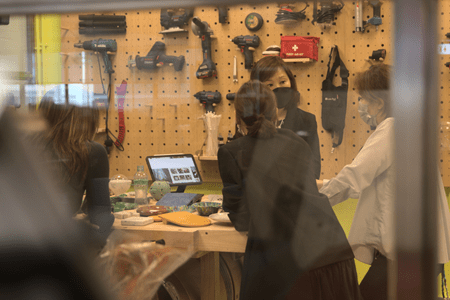 Jen: For me, I hope to inspire and bring awareness to our people, partners and communities at EAST Hong Kong and Swire Hotels. How about for you? How do you see yourselves making an influence on others? Were there any KPIs set or a goal you have worked towards?
Jen: For me, I hope to inspire and bring awareness to our people, partners and communities at EAST Hong Kong and Swire Hotels. How about for you? How do you see yourselves making an influence on others? Were there any KPIs set or a goal you have worked towards?
Jacqueline: The goal for us is to turn this whole passion project around sustainability into a commercial project as well.
Jen: That makes sense. What’s your goal in the next five to ten years?
Jacqueline: One side is EDIT Academy and helping educate the next generation. Then the big goal is to hopefully make this sustainable approach have commercial value. I’m not saying that we need to make a huge amount of money. The most sustainable business is not just talking sustainable. We need to make sustainable material valuable so that clients will accept it and seek it out.
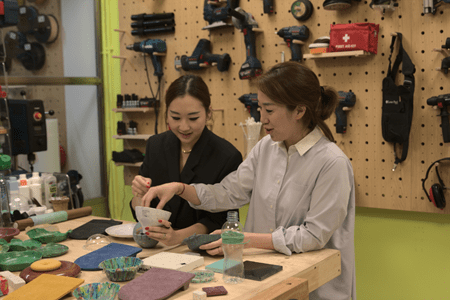
Gen: We hope the end customer and clients feel that it’s worth it to pay a premium for sustainability. If you want to make it last and have a message, then it’s something it’s worth paying for.
Jen: What kind of challenges have you encountered when you’ve dealt with clients who might be a bit reluctant to apply a sustainable approach to their projects due to cost? How did you persuade them?
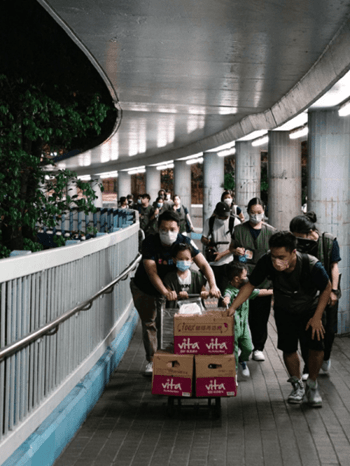 Jacqueline: We usually say that you don’t need your whole restaurant upcycled – just 10 percent, like a feature wall, being sustainable is already enough. You can push the message this way without the high costs.
Jacqueline: We usually say that you don’t need your whole restaurant upcycled – just 10 percent, like a feature wall, being sustainable is already enough. You can push the message this way without the high costs.
Jen: Yes, agreed, just get started first and then see how far you can extend it…Now, in Hong Kong, sustainability is still a rather “green” topic compared with other countries – what’s your view on this? And what do you think of Hong Kong’s stance on sustainability? Personally, I like the way Japan, South Korea and Taiwan approach it. Hong Kong’s problem is always seems to be about landfills.
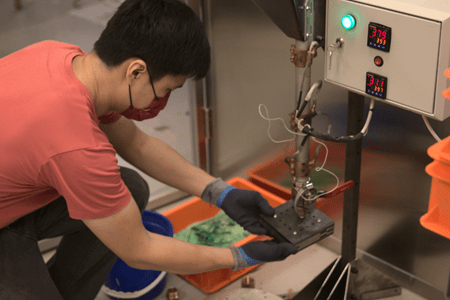
Jen: Tell us about an interesting project you're working on right now.
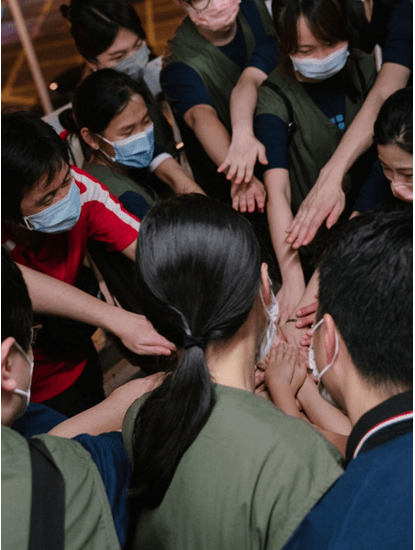
Jen: Are there any successful stories that you’re proud of?
Gen: The mooncakes, of course! [laughs]
Jacqueline: The happiest and most proud we’ve been is when we were working on HOMEDIT. We design fine jewellery and malls, but this has a different kind of meaning. It builds a better community and plants a seed in the kids’ minds that they also have a power to do this. The past ten years, we’ve collaborated with different brands and companies, but now we want to give back to the community. The message might be small, says Jacqueline, but the impact is big.
Bringing like-minded people together always lights up the passion in their eyes – and it’s clear how passionate these three are as their lively conversation races on. The message might be seem small, says Jacqueline, but the impact is big.

